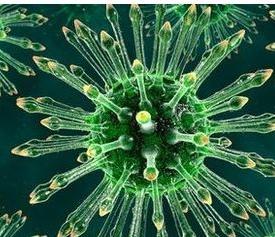An infectious process is a complex process consisting of many components, which includes the interaction of various infectious agents with the human body. Among other things, it is characterized by the development of complex reactions, various changes in the functioning of internal organs and organ systems, changes in hormonal status, as well as various immunological defense mechanisms and resistance factors (non-specific).
Infectious process - the basis for the development of any disease of an infectious nature. After heart diseases and cancer pathologies, diseases of an infectious nature, in terms of prevalence, take third place and, in connection with this, knowledge of their etiology is extremely important in medical practice.
To the causative agents of infectious diseases can be attributed all sorts of microorganisms of animal or plant origin - lower fungi, rickettsia, bacteria, viruses, spirochetes, protozoa. An infectious agent is the primary and mandatory cause that leads to the onset of the disease. It is these agents that determine how specific the pathological condition will be, and what the clinical manifestations will be. But you need to understand that not every penetration of the "enemy" agent will give rise to the disease. In the event that the body’s adaptation mechanism prevails over the damage mechanism, the infectious process will not be complete enough and a pronounced response of the immune system will arise, as a result of which the infectious agents will go into an inactive form. The chance of such a transition depends not only on the state of the body's immune system, but also on the degree of virulence, pathogenicity, as well as invasiveness and many other properties characteristic of the pathogenic microorganism.

The pathogenicity of microorganisms is their direct ability to cause the onset of the disease.
The infectious process is built in several stages:
- overcoming the barriers of the human body (mechanical, chemical, environmental);
- colonization and adhesion by the pathogen of the accessible cavities of the human body;
- reproduction of harmful agents;
- the formation by the body of protective reactions to the harmful effects of the pathogenic microorganism;
- restoration of the internal environment of the human body, as well as the acquisition by a person of immunity to a pathogenic microorganism.
It is precisely such periods of infectious diseases that most often pass through any person into whose body “enemy” agents enter. Vaginal infections are also no exception and go through all these stages. It is worth noting that the time from the penetration of the agent into the body and until the first symptoms of the disease appears is called incubation.
The knowledge of all these mechanisms is extremely important, since infectious diseases are one of the most frequent occurrences on the planet. In this regard, it is extremely important to understand all the features of infectious processes. This will allow not only to diagnose the disease in time, but also to choose the right treatment tactics for him.